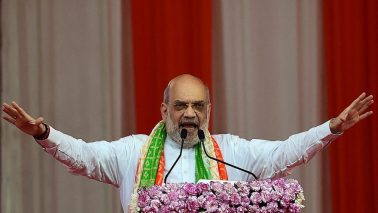The conviction of Derek Chauvin for the murder of George Floyd makes last summer’s Black Lives Matter mania in British institutions look even stranger. The British Museum, Oxbridge colleges, Sir Keir Starmer, football teams, government departments, Kew Gardens, the National Trust and numerous corporations indulged in various forms of self-abasement. Some ‘took the knee’. At the Ministry of Defence, the permanent secretary, Sir Stephen Lovegrove, broke professional political impartiality by emailing his staff about the ‘deep roots’ of ‘systemic racial inequality’ in Britain, and signing off with a BLM hashtag. He was subsequently promoted to be the UK National Security Adviser. It was never clear why, among the many dreadful injustices and atrocities in the world, this particular one required formal reaction or policy change from public bodies. If they start reacting to one horrible killing in Minneapolis, why not react to Chinese persecution of the Uighurs, the killings of protestors in Burma or the mass beheadings by Isis in Mozambique? The idiocy is even clearer now, because Chauvin has been fairly convicted by a jury. Racial problems in America are real enough, but it is a country with due process and the rule of law. BLM constantly rejects this. Do British institutions reject it too?
New Zealand is supposed to be the place where the rich buy property to escape global political conflagration. Its politicians, however, seem to feel less secure there. In February, when China was imposing trade sanctions on Australia, New Zealand chose to upgrade its free trade agreement with Beijing. This week, Jacinda Ardern’s government declared it will no longer work within the Five Eyes intelligence network (with the United States, Britain, Australia and Canada) when dealing with China. It dislikes signing statements which condemn China’s treaty-breaking suppression of democracy in Hong Kong. Its foreign minister, Nanaia Mahuta, compares the relationship between China and her country with that between ‘dragon and taniwha’ (a Maori water monster), ‘symbols of the strength of our particular customs, traditions and values, that aren’t always the same, but need to be maintained and respected’. She does not acknowledge that the Chinese Communist party dragon’s traditions and values involve dictatorship, repression and murder, so her poor taniwha may not last long. Five Eyes and western intelligence will survive New Zealand’s semi-detachment. When he was prime minister of Australia, Tony Abbott was heard to say that it was not Five Eyes, but ‘Four Eyes and a wig’. But the point is that Ms Ardern’s new model version of her country is scared of China. The national anthem is ‘God Defend New Zealand’, but it is Australia that has to do the work of the Almighty.
In his Diary here last week, Huw Edwards emphasised his heavy workload before hosting the BBC’s coverage of the funeral of the Duke of Edinburgh, learning about ‘ceremonial detail, armed forces involvement, order of service’ etc. ‘In four hours of live broadcasting, watched by an audience of millions, the focus is on accuracy and tone,’ he went on, grumbling about people ‘doling out advice online’ though they had ‘never been entrusted with such a duty’. As it turned out, Edwards sensibly fell silent during the service; but as we watched the Queen emerging from St George’s Chapel he started to praise the readings, singling out the one from ‘Ecclesiastes, the Book of the Preacher’. In fact, it was not from Ecclesiastes, but from a book of the Apocrypha, Ecclesiasticus. Huw’s ‘focus on accuracy’ failed, thus undermining credibility. He reminded me of people who, talking about the 1945 Labour government, muddle up Bevin and Bevan.
‘The landowning class [in the 18th century] had broadened from inherited aristocratic power to the mercantile middle class, with new money made from slavery and colonialism being used to enclose more and more common ground, divesting English commoners of their rights with money gleaned from barbaric exploitation of labour both at home and abroad.’ So writes Nick Hayes, on behalf of a new Right to Roam campaign, not — as his prose might suggest — in the Socialist Worker, but in the spring edition of Countryside Voices, the magazine of the Campaign to Protect Rural England. Mr Hayes wants much wider rights of access to land belonging to the heirs of these barbaric exploiters. Crispin Truman OBE (as he styles himself in print) is the chief executive of the CPRE. ‘I was completely won over by Nick Hayes’ argument,’ he writes, ‘that opening up more of rural England will encourage more people to love and take care of it.’ Does that make sense? If incited by Mr Hayes to hate the people who own much of the countryside, might visitors not chuck litter all over it with even greater abandon than during Covid? It is a fascinating psychological phenomenon that the people who run rural or heritage charities and pressure groups at national level so often have political motivations at odds with the views of the people who support those organisations locally. It is a swizz.
Following my note last week about Anglo-Indian words, the distinguished critic Anthony Lane sends me a passage from Tom Stoppard’s 1990s play Indian Ink, in which Flora, the heroine, tries out with Das, an Indian artist, a short dialogue which crams in as many such words as possible: ‘Flora: While having tiffin on the verandah of the bungalow I spilled kedgeree on my dungarees and had to go to the gymkhana in my pyjamas looking like a coolie. Das: I was buying chutney in the bazaar when a thug who had escaped from choky ran amuck and killed a box-wallah for his loot, creating a hullabaloo and landing himself in the mulligatawny.’ Like Kipling, Stoppard passed a large part of his boyhood in India. The two artists have very different imaginations, but perhaps their linguistic exuberance has a common root.







Comments